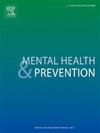Do self-reported well-being and residence predict depression and anxiety in Mozambican women? A national survey analysis
IF 2.4
Q2 Medicine
引用次数: 0
Abstract
Background
Understanding the intersection of well-being, residential location and mental health outcomes is essential for developing effective mental health interventions for women in Mozambique.
Objective
To examine whether self-reported well-being and place of residence predict depression and anxiety symptoms
Methods
A retrospective analysis was conducted using data from the 2023 Mozambique Demographic and Health Survey, with a sample of 13,057 women aged 15 to 49 years. Logistic regression analysis was performed to identify significant predictors of depression and anxiety.
Results
The majority report good well-being (76.2 %), rural residency (56.7 %), no history of depression (98.6 %) and low anxiety (90.7 %). Women reporting moderate well-being were 1.5 times as likely to be diagnosed with depression (AOR = 1.54, 95 % CI: 1.05–2.27, p = 0.028) and 1.7 times as likely to feel anxious (AOR = 1.66, 95 % CI: 1.34– 2.05, p = 0.001) compared to those with good well-being. Those reporting bad well-being were 2.6 times as likely to feel anxious (AOR = 2.63, 95 % CI: 1.75–3.95, p = 0.001) compared to those with good well-being. Additionally, rural women were 0.35 times as likely to feel anxious (AOR = 0.65, 95 % CI: 0.49–0.85, p = 0.001) than their urban counterparts.
Conclusion
There is a link between self-reported well-being, place of residence, and mental health outcomes among women in Mozambique, with urban women being more likely to experience mental health conditions, indicating the need for targeted mental health interventions and support.
自我报告的幸福感和居住状况能否预测莫桑比克妇女的抑郁和焦虑?全国调查分析
了解福祉、居住地点和心理健康结果之间的相互关系,对于为莫桑比克妇女制定有效的心理健康干预措施至关重要。目的探讨自我报告的幸福感和居住地是否能预测抑郁和焦虑症状。方法对2023年莫桑比克人口与健康调查数据进行回顾性分析,样本为13057名年龄在15至49岁之间的女性。进行Logistic回归分析以确定抑郁和焦虑的显著预测因子。结果幸福感良好(76.2%)、农村居住(56.7%)、无抑郁史(98.6%)、低焦虑(90.7%)者居多。与健康状况良好的女性相比,幸福感中等的女性被诊断为抑郁症的可能性是后者的1.5倍(AOR = 1.54, 95% CI: 1.05-2.27, p = 0.028),感到焦虑的可能性是后者的1.7倍(AOR = 1.66, 95% CI: 1.34 - 2.05, p = 0.001)。报告幸福感差的人感到焦虑的可能性是幸福感好的人的2.6倍(AOR = 2.63, 95% CI: 1.75-3.95, p = 0.001)。此外,农村妇女感到焦虑的可能性是城市妇女的0.35倍(AOR = 0.65, 95% CI: 0.49-0.85, p = 0.001)。结论:在莫桑比克妇女中,自我报告的幸福感、居住地和心理健康结果之间存在联系,城市妇女更有可能出现心理健康状况,这表明需要有针对性的心理健康干预和支持。
本文章由计算机程序翻译,如有差异,请以英文原文为准。
求助全文
约1分钟内获得全文
求助全文
来源期刊

Mental Health and Prevention
Medicine-Psychiatry and Mental Health
CiteScore
2.10
自引率
0.00%
发文量
22
审稿时长
24 days
 求助内容:
求助内容: 应助结果提醒方式:
应助结果提醒方式:


